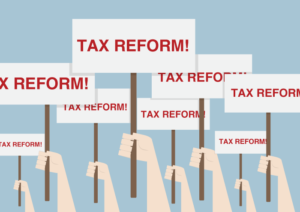FBAR Penalties Could Be Lessened Under New IRS Guidelines
According to the IRS, “if you have a financial interest in or signature authority over a foreign financial account, including a bank account, brokerage account, mutual fund, trust, or other type of foreign financial account, exceeding certain thresholds, the Bank Secrecy Act may require you to report the account yearly to the Department of Treasury by electronically filing a Financial Crimes Enforcement Network (FinCEN) 114, Report of Foreign Bank and Financial Accounts (FBAR).”
In other words, anyone who has money in a foreign bank account that exceeds $10,000 at any time during a given year will need to report that income to the IRS via an FBAR. However, recently, the IRS issued some new guidance regarding the penalties for those who don’t file an FBAR. According to reports, the IRS released a statement that noted: “For each year for which it is determined that there was a willful violation, examiners must fully develop and adequately document in the examination work papers their analysis regarding willfulness.”
For any case that involves willful violation for several years, it is up to the examiner to recommend the penalty length for each year the violation was determined to be willful. The IRS stated that typically the total penalty for the combined years under examination would not exceed ‘50 percent of the highest aggregate balance of all unreported foreign financial accounts during the years under examination.”
Meantime, an examiner can recommend more or less than the 50 percent threshold, but the total penalty cannot “exceed 100 percent of the highest aggregate balance.” There are obviously many possible scenarios and each case will be treated separately on its own merits and circumstances. The bottom line is you should still report your FBARs each year and report them on time. If you need help planning for and filing your FBAR then contact GROCO today at 1-877-CPA-2006, or by clicking here.
The Inspiration Behind the One Minute Manager
The Inspiration Behind the One Minute Manager “As John Lennon said, “Life is what happens to you while you’re busy making other plans” I met Spencer Johnson at a cocktail party in San Diego- he was a children’s book writer. I don’t know if you remember the the value tale series, the value of honesty,…
American Taxpayers Are All for Real Tax Reform
Taxes, taxes, taxes. One thing is for sure you can’t run and hide from them. While most Americans pay their taxes, some more begrudgingly than others, most taxpayers wish they could pay less. What’s more, most taxpayers would also love to see some real change in the tax system instead of the constant back-and-forth…
Trump Still Not Giving in to Demands Calling for Tax Returns
So what do you think about Donald Trump and his tax returns? This has been the subject of much scrutiny since Mr. Trump announced he was running for president and eventually becoming the republican nominee. Whether you love him or hate him, it appears that most people, even republicans feel that he should release…
TechCrunch Disrupt SF 2016- Koder
TechCrunch Disrupt SF 2016- Koder Alan: Hi, I’m here today with Elmer Morales and he is the co-founder or founder of Koder. Elmer: Founder, yes. That’s right. Alan: Welcome to today’s show. Elmer: Thank you. Thanks for having me. Alan: So Elmer, is this your first company? Elmer: It’s actually my fourth, I’ve had a few others before and you know…



